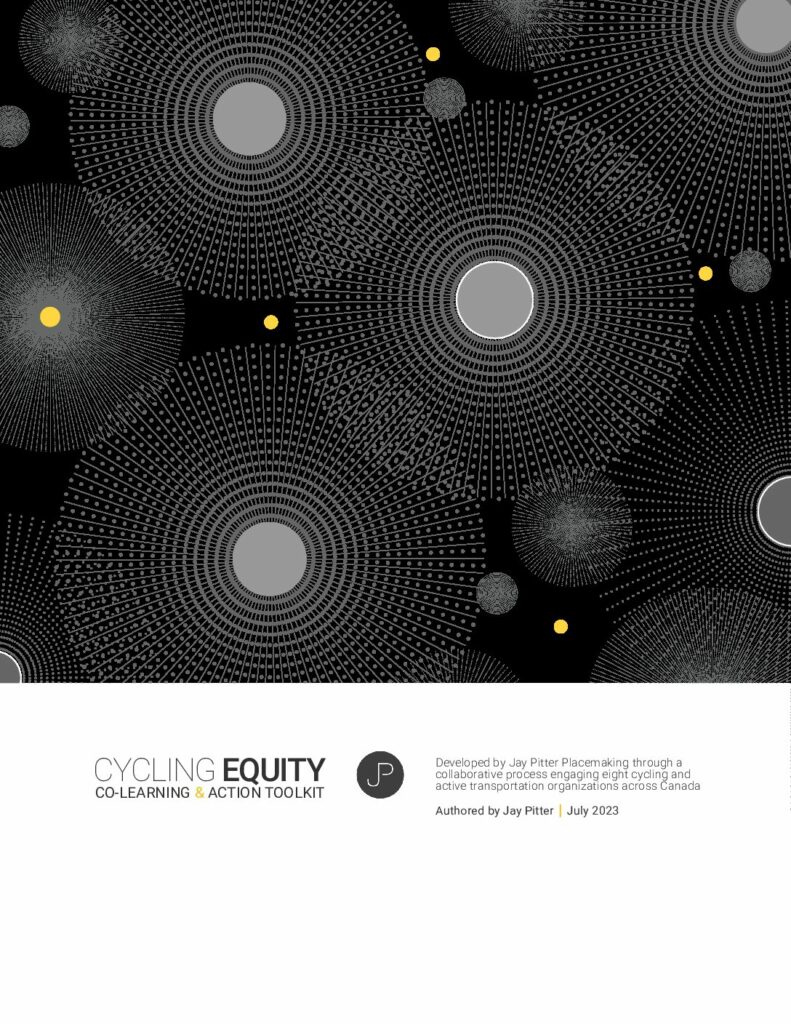This Cycling Equity Toolkit is authored by Jay Pitter, and developed through a collaborative process that engaged eight cycling and active transportation organizations across Canada, including TCAT. In addition to being informed by these foremost Canadian organizations, this resource benefits from the deep expertise of reputable cycling equity advocates such as Tamika Butler, Anthony Taylor, Christopher McGarrell and others residing in Canada and the U.S. In keeping with Jay Pitter Placemaking’s award-winning approach—both academic and professional practice—the Toolkit is evidence-based and contains key Practice principles, frameworks, research demonstrating the dimensions of inequity, and precedents reflecting emerging equitable practices and policies. It also contains numerous reflection questions with form-fillable boxes, checklists and real-world recommendations to help readers integrate their background knowledge and specific context with new learnings. Ultimately, the Cycling Equity Toolkit has been developed to prompt personal reflection, professional development and organizational transformation.
The Cycling Equity Toolkit is a comprehensive resource designed to address the pressing issue of mobility equity and environmental sustainability. How we move within our communities matters as much as where we are headed. Unfortunately, historical structural inequities, such as car-centric infrastructure and privileged urban geographies, have limited the movement of equity-deserving individuals and groups, depriving them of genuine choice, joy, and freedom.
This toolkit aims to promote human-centred modes of movement, such as walking, rolling, skipping, and cycling, which have long been overshadowed by automobile-focused culture. Advocates in mobility equity and environmental movements have made significant strides in challenging this culture, with a growing number of racialized activists and equity-deserving groups demanding intersectional advocacy.
The toolkit emerges from a year-long engagement process with Canadian cycling organizations, identifying core areas for capacity-building and equitable principles. Rooted in evidence-based practices, the toolkit offers cycling equity frameworks, precedents, and hands-on engagement prompts to facilitate actionable change.
The goal is to make cycling an exhilarating, sustainable experience accessible to a diverse group of people while fostering equitable approaches in cycling and broader mobility sectors. This toolkit will add momentum in integrating equitable practices across all aspects of human-centred mobility advocacy and inspires us to build a future where movement is inclusive, joyful, and sustainable for all.

